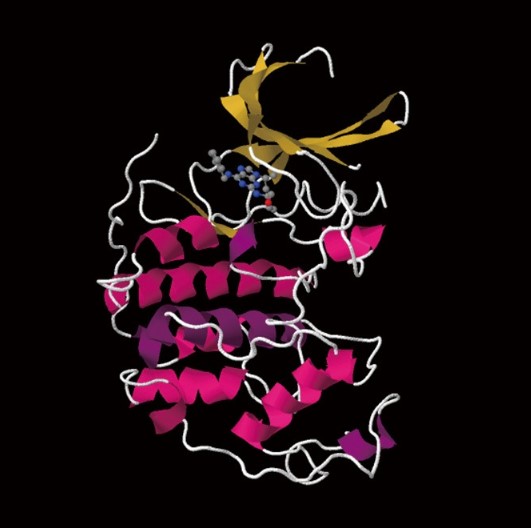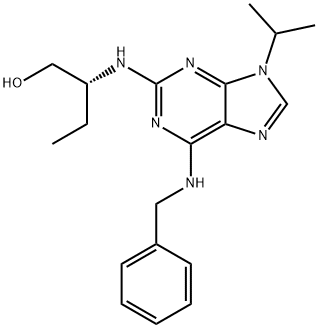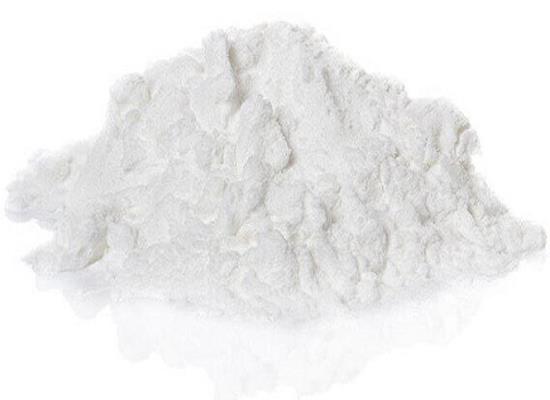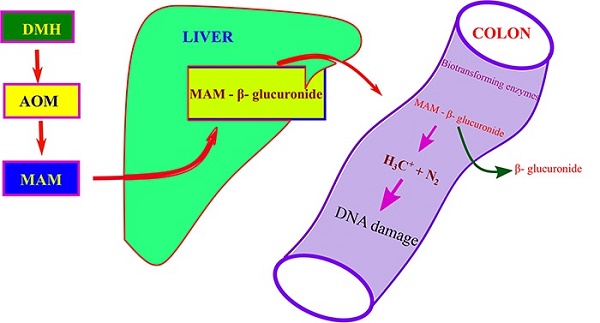A CDK small molecule inhibitor——Roscovitine
Description
Roscovitine is an organic compound with the chemical formula C19H26N6O. Its systematic name is (2R)-2-{[6-(Benzylamino)-9-isopropyl-9H-purin-2-yl] amino}-1-butanol. It is also known as (R)-Roscovitine, CY-202, and Seliciclib. Roscovitine is named after Roscoff—a French town, where the lab which discovered the compound was located[1]. Roscovitine is a widely used inhibitor in both basic research and disease research.
Property
This substance is a white powder that is soluble in DMSO (up to 50 mM) and in 50 mM HCl with the pH adjusted to 2.5. Roscovitine belongs to the family of purines, which all share the basic ring structure and include biologically important molecules such as ATP, cyclic AMP, NAD, FAD, adenine guanine, etc. Roscovitine is a broad-range purine analog inhibitor, which inhibits CDK1, CDK2, CDK5, CDK7and CDK9 (IC50 ~0.2-0.7 µM) but is a poor inhibitor for CDK4, CDK6 and CDK8 (IC50 >100 µM). Only several kinases are sensitive to roscovitine in the 1-40 µM range (CaMK2, CK1α, CK1δ, DYRK1A, EPHB2, ERK1, ERK2, FAK, and IRAK4), but other kinases are insensitive to roscovitine. The crystal structure of CDK2 in complex with roscovitine is shown below:

Mechanism of action
Roscovitine acts by competing with ATP for binding at the ATP-binding site of CDKs by interacting with the amino acids that line up the ATP-binding pocket of the Cyclin-dependent kinases (CDK) catalytic domain. In the case of CDK2, the interaction mostly consists of two hydrogen bonds (involving N7 and N6 of the purine) with backbone atoms of Leu83. A weak hydrogen bond is also formed between O1 and a water molecule and the benzyl ring of roscovitine is facing the outside of the ATP-binding pocket[1]. This interaction prevents ATP from binding the kinase, and thus catalytic reaction cannot be performed.
Clinical research
Over the past decade, numerous studies have implicated roscovitine as an anticancer drug with promising therapeutic properties[2]. It was found to inhibit cell division control protein 2, cdk2, or cdk5 kinase activities, and was shown to directly inhibit nuclear factor-κb activation in cancer cell lines. Roscovitine downregulated the expression of myeloid cell leukemia (Mcl)-1 protein, which is likely involved in inflammatory processes. Hence, roscovitine may have anti-inflammatory effects. The biochemical analyses of Airik et al. show that a blockade of cell cycle activity with roscovitine suppresses the formation of cortical collecting duct cysts in mice, identifying cell cycle dysregulation as the primary mechanism of cyst growth in early postnatal kidneys. The orally available kinase inhibitor R-roscovitine has undergone clinical trials against various cancers and is currently under clinical evaluation against Cushing disease and rheumatoid arthritis[3]. Roscovitine displays biological properties suggesting potential benefits in CF: it partially corrects F508del-CFTR trafficking, stimulates the bactericidal properties of CF alveolar macrophages, and displays anti-inflammatory properties and analgesic effects.
References
[1] Cicenas J, et al. Roscovitine in cancer and other diseases. Annals of translational medicine, 2015; 3: 135.
[2] Airik R, et al. Roscovitine blocks collecting duct cyst growth in Cep164-deficient kidneys. Kidney International, 2019; 96: 320-326.
[3] Meijer L, et al. Safety and pharmacokinetics of Roscovitine (Seliciclib) in cystic fibrosis patients chronically infected with Pseudomonas aeruginosa, a randomized, placebo-controlled study. Journal of Cystic Fibrosis, 2022; 21: 529-536
You may like
Related articles And Qustion
See also
Lastest Price from Roscovitine manufacturers

US $15.00-10.00/KG2021-08-12
- CAS:
- 186692-46-6
- Min. Order:
- 1KG
- Purity:
- 99%+ HPLC
- Supply Ability:
- Monthly supply of 1 ton



